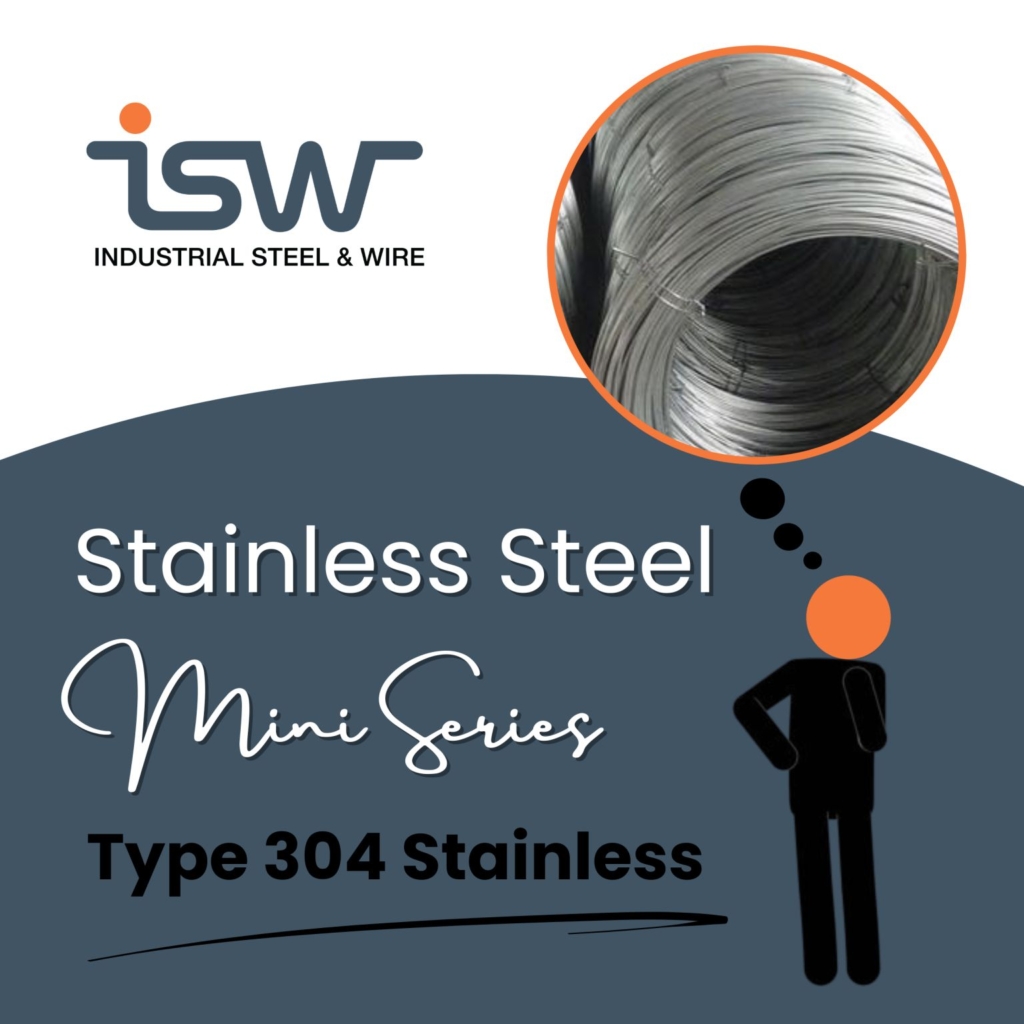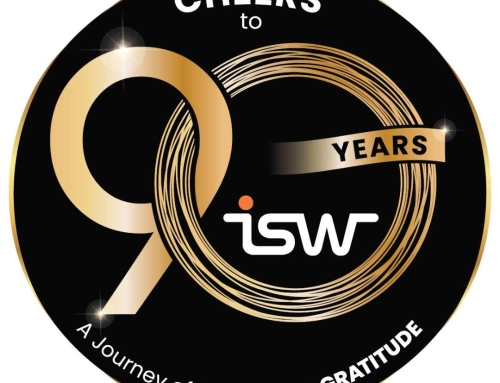
ISW’s Stainless Steel Mini Series is BACK!
Today, we’re looking at 304 stainless steel, a type of austenitic stainless that is the most versatile & widely used, due to its excellent corrosion resistance, formability, & weldability.
Type 304 is still sometimes referred to by its old name, 18/8 which is derived from the nominal composition of type 304 being 18% chromium & 8% nickel. Type 304 stainless steel can be severely deep drawn, making 304 the dominant grade used in applications like stainless sinks & cookware. Type 304L is the low carbon version of 304, used in heavy gauge components for improved weldability. Some products such as plates & pipes may be available as “dual certified” material that meets the criteria for both 304 & 304L. 304H, a high carbon content variant, is also available for use at high temperatures.
Here are some of the common applications of 304 stainless steel:
- Food Service/Production equipment: 304 stainless is commonly used here because it is resistant to corrosion from food & cleaning chemicals. It is also easy to clean and sanitize, making it a good choice for kitchens and restaurants. 304 is also commonly used in brewery, food, dairy & pharmaceutical production equipment.
- Building materials: 304 stainless steel is used in a variety of building materials, including architectural panels, railings, and handrails. It is resistant to weathering and corrosion, making it a good choice for outdoor applications.
- Medical devices: 304 stainless steel is used in a variety of medical devices, including surgical instruments, implants, and prostheses. It is resistant to corrosion from bodily fluids and chemicals, making it a safe and reliable material choice.
- Industrial applications: 304 stainless steel is used in a variety of industrial applications, including chemical processing equipment, heat exchangers, and piping. It is resistant to corrosion from a variety of chemicals and temperatures, making it a good choice for use in harsh environments.
Hot Working: Fabrication methods like forging, that involve hot working should occur after uniform heating to 1149-1260°C. The fabricated components should then be rapidly cooled to ensure maximum corrosion resistance.
Heat Treatment: 304 stainless steel cannot be hardened by heat treatment. Solution treatment or annealing can be done by rapid cooling after heating to 1010- 1120°C.
Looking for 304 Stainless Steel Wire?
The experts at ISW can help! Get a quote from us fast by emailing us at quotes@industeel.com or fill out
the quote form here!





